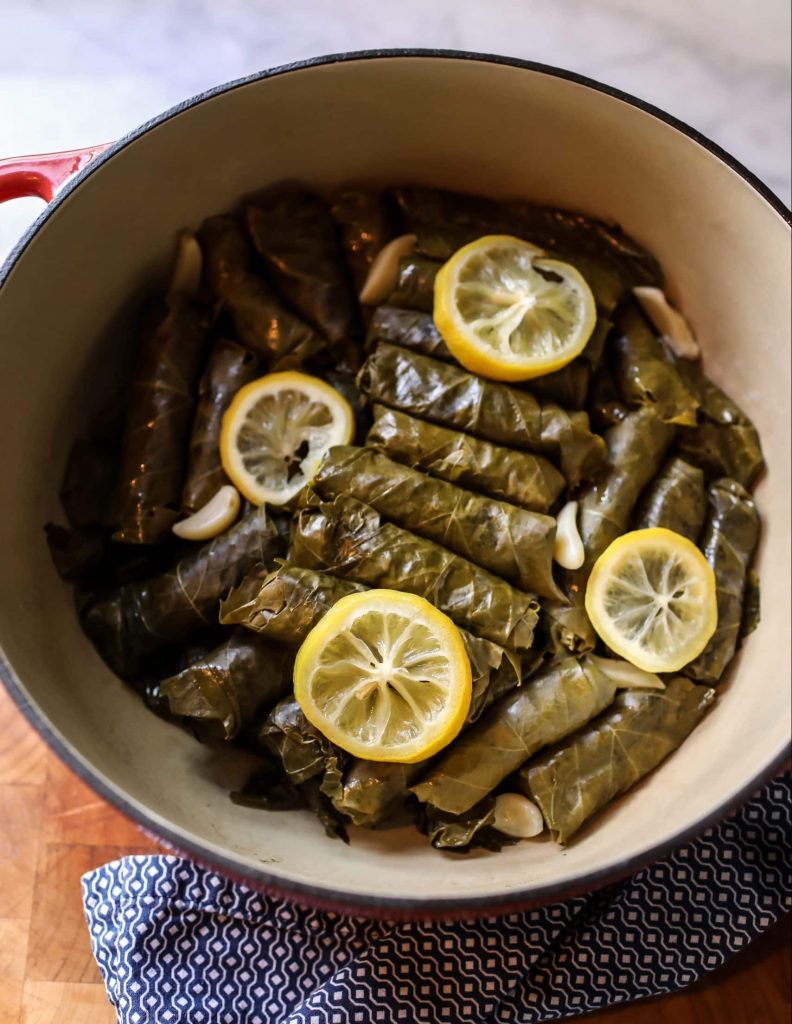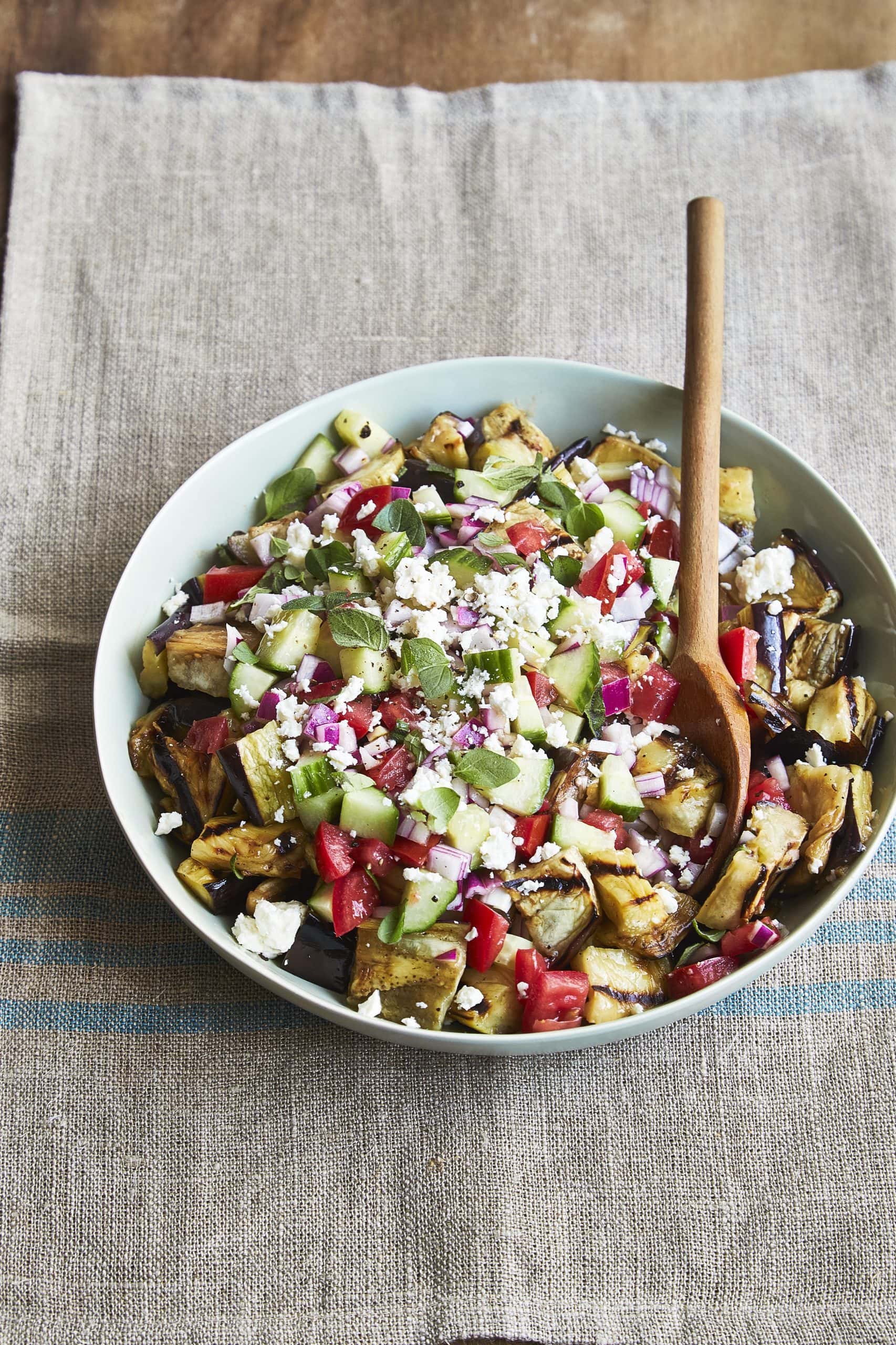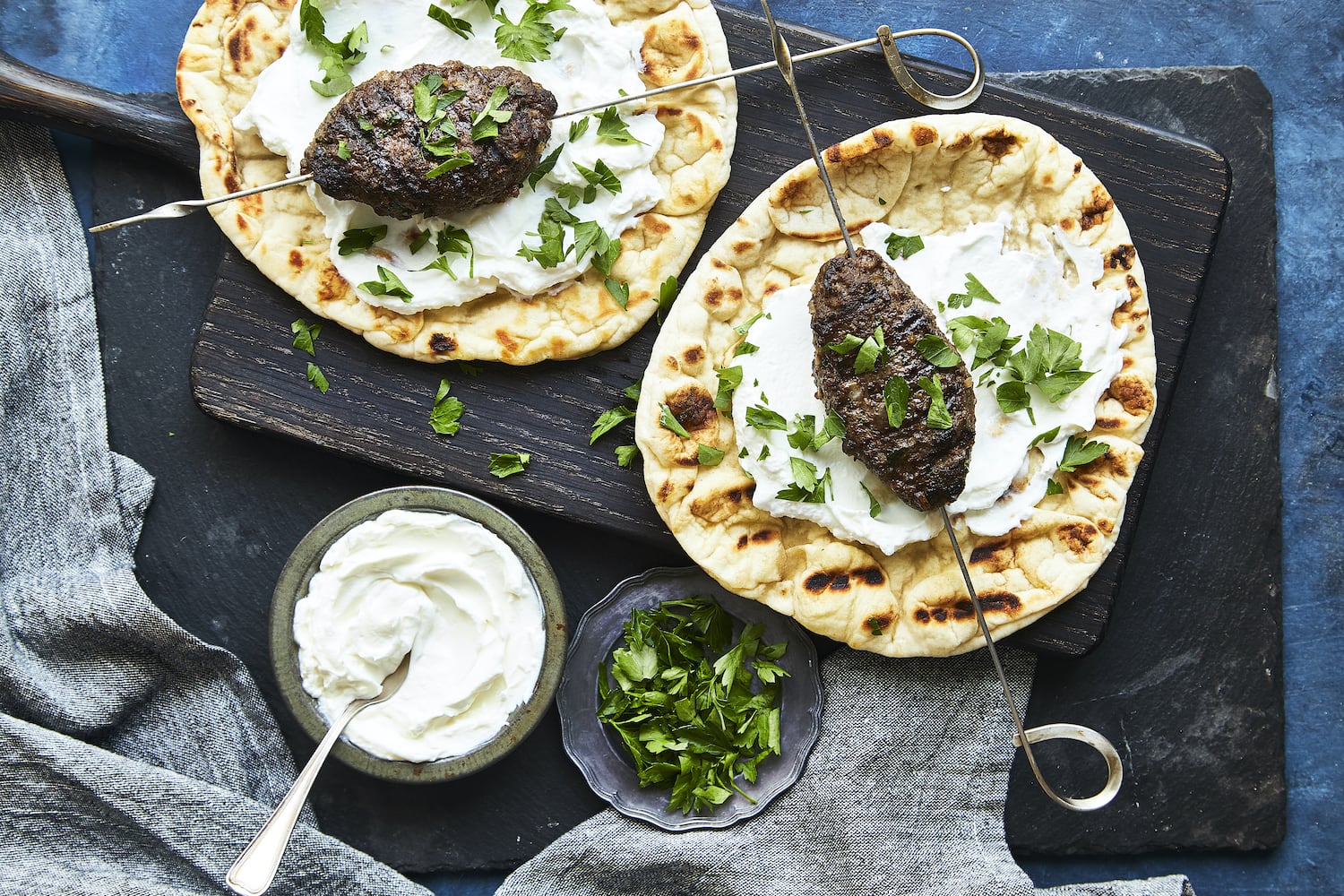
Moore family photo and dolmades shot by Emily Dorio.
Although the barbecue cookout is a time-honored American summertime tradition, grilling is truly one of mankind’s most universal cooking techniques, spanning all six inhabited continents. While many people associate the South, Kansas City or the West with American expressions of the barbeque cartform, Nashville-based Matt Moore—author, chef, pilot, musician and full-on rennaissance man—is the perfect person to remind you that the proverbial American melting pot widens the definition of what makes barbeque both international and American.
Moore’s culinary showmanship has reached global audiences through his appearances in top media, ranging from Esquire and the Wall Street Journal to NBC’s TODAY and the BBC. However, he also openly shares his secrets, generously sharing practical cooking advice with his fellow grilling enthusiasts through his latest book, “Serial Griller,” as well as his best-selling 2015 book “A Southern Gentleman’s Kitchen.” The older book includes 11 recipes inspired by his Middle Eastern roots, such as Za’atar-Spiced Wings and Chicken Shishlik with Green Garbanzo Masabacha & Gribenes.
“As somebody born and raised in the South, and with my Beirut-born grandfather a butcher and my father a cattleman, we always had access to great beef,” Moore recalls. “Early on, my mother, who was proudly of Lebanese/Syrian descent, would always prepare our steaks, burgers and kebabs in much different ways than our friends and neighbors. There was always great olive oil, vinegars and citrus used in our marinades, not to mention tons of garlic. Traditional Middle Eastern spices like cinnamon, allspice and sumac were always the Je ne sais quoi of why our food always tasted so good.”
There’s no question that Matt believes grilling over a live fire (i.e. a fire set by the cook, using charcoal, wood or another “fuel source”–a technique dating back to prehistoric times) makes practically everything better, and he notes that the Middle Eastern traditions he was raised with celebrates this brilliantly through fresh grilled kebabs, vegetables, fish, and other classics that easily translate to taste buds everywhere. Like any other cooking technique, it does take time to master, but the current world situation provides enthusiasts at every level of experience to improve their skills as well as adopt healthier eating habits.
“Being at home either makes one more sedentary or allows you the time to stay a bit more active since there are less day-to-day distractions,” Matt explains. “I’m honesty grilling now more than ever. It provides me with an atmosphere and experience to celebrate each day, and it also means I’m not deep frying or consuming many carb related foods since those are typically less accommodating using that method. Lean proteins, fish and vegetables are a part of my nightly routine. My kids love the Quick Beef Kefta! However, when it comes to my diet, I just avoid the pita to save some of the carbs–though it pains me to do so!
During the hot summer months (which often extend into fall in many parts of the country), Matt stresses that the grill is your best friend to cook up healthy foods for your family…with the extra benefit of keeping the heat out of your kitchen. Essentials which should always be in your pantry, especially for this cooking lifestyle, include high-quality olive oil, garlic, lemons, kosher salt and fresh cracked pepper. All of these constitute the base of every recipe.
“I literally do everything on the grill, from traditional grilled fare like steaks and burgers to baking cakes and sides utilizing indirect/convective methods,” he says. “I like keeping whole chickens at hand to spatchcock and grill, as the whole family enjoys that with a side of salad spiked heavily with feta and fresh oregano.”

Beyond the grill, Matt confides his family’s sentimental favorite food is grape leaves, something that the whole family can participate in when prepping a meal. “It’s something I’ve waxed poetic on for years, and often I believe we Middle Easterner’s bicker as to the best methods and ingredients as any good southerner might with chicken, beef or salmon,” he recalls. “At practically every family gathering when I was growing up, Sitty (my grandma) spent the early morning hours rolling grape leaves by hand, followed by frying batches of chicken in cast-iron—all in an effort to feed the kids bellies after a Sunday mass. However, we kiddos did not eat for free. The art of rolling a grape leaf was taught at an early age—and if you wanted to eat ‘em, you’d have to roll ‘em. This is one of the first traditions I am passing on to my kids.”
- 1 cup plain whole-milk Greek yogurt
- 2 tbsp fresh lemon juice (from 1 lemon)
- 1 tsp kosher salt
- 1 pound 80/20 lean ground beef
- ¼ cup finely chopped onion (from 1 small onion)
- 2 tbsp chopped fresh flat-leaf parsley, plus more for garnish
- 3 medium garlic cloves, grated on a Microplane (2 tsp)
- ½ tsp ground allspice
- ½ tsp freshly ground black pepper
- 4 (6-inch-round) flatbreads (such as Toufayan)
- 2 tbsp olive oil
- 1 cup plain whole-milk Greek yogurt
- 2 tbsp fresh lemon juice (from 1 lemon)
- 1 tsp kosher salt
- 1 pound 80/20 lean ground beef
- ¼ cup finely chopped onion (from 1 small onion)
- 2 tbsp chopped fresh flat-leaf parsley, plus more for garnish
- 3 medium garlic cloves, grated on a Microplane (2 tsp)
- ½ tsp ground allspice
- ½ tsp freshly ground black pepper
- 4 (6-inch-round) flatbreads (such as Toufayan)
- 2 tbsp olive oil
Adjust the vents as needed to maintain an internal temperature of 350° to 400°F. Coat the top grate with oil, place on the grill. (If using a gas grill, preheat to medium [350° to 400°F].)
Stir together the ground chuck, onion, parsley, garlic, allspice, pepper, and remaining ¾ teaspoon salt in a bowl.
Step 6:
Step 7:
Step 8:
Step 9:
Chef’s Note: “My mama’s side of the family hails from Beirut, immigrating several generations ago to South Georgia and beyond. We might have settled in the South and learned to make perfect fried chicken, but we also brought plenty of recipe standards from the old country. The combo of onion, parsley, garlic, and allspice mixed into beef is an amalgam of flavors that transports me to my childhood. The recent accessibility of quality, thick Greek yogurt makes the process of churning out labneh—a tangy Middle Eastern cream cheese—achievable. A shmear of labneh on warm, crusty grilled flatbread topped with the savory kafta is unbelievably delicious. Sub ground lamb or even venison for the beef depending on your tastes and the season.”
EGGPLANT MEDITERRANEAN
Matt Moore, MattRMoore.com

- 4 cups chicken stock
- 6 medium garlic cloves, smashed
- 2 large sprigs fresh oregano, plus chopped leaves for garnish
- 1 tbsp plus 1 tsp kosher salt
- 1 tbsp black peppercorns
- 3 cups ice
- 2 medium eggplants (about 3½ pounds)
- ½ tsp freshly ground black pepper
- ¾ cup diced plum tomatoes (from 2 medium tomatoes)
- ½ cup diced English cucumber (from 1 medium cucumber)
- ¼ cup diced red onion (from 1 medium onion)

Bring the stock, garlic, oregano sprigs, 1 tbsp of the salt, and the peppercorns to a boil in a medium saucepan over high heat.
Remove from the heat, cover, and let stand for 10 minutes. Add the ice to the saucepan and stir until melted.
Partially peel the eggplants by peeling in alternating stripes. Cut the eggplants lengthwise into 1-inch-thick slabs. Place in an 11- x 7-inch baking dish and pour over the stock mixture.
Let marinate at room temperature for 1 hour. Remove the eggplant from the marinade; discard the marinade. Pat the eggplant dry.
Open the bottom vent of a charcoal grill completely. Light a charcoal chimney starter filled with charcoal.
Step 6:
When the coals are covered with gray ash, pour them onto the bottom grate of the grill. Adjust the vents as needed to maintain an internal temperature of 450° to 500°F. Coat the top grate with oil; place on the grill. (If using a gas grill, preheat to high [450° to 500°F].)
Step 7:
Coat the eggplant slabs with cooking spray and sprinkle with the ground black pepper and ¾ teaspoon of the salt. Place on the oiled grates and grill, covered, until the eggplant is tender and grill marks appear, 5 to 6 minutes per side.
Step 8:
Transfer the eggplant to a cutting board and let cool for 5 minutes. Roughly chop the eggplant into 1- to 2-inch pieces and arrange on a serving platter.
Step 9:
Toss together the tomatoes, cucumber, onion, vinegar, oil, and remaining ¼ teaspoon salt in a medium bowl. Sprinkle the mixture evenly over the eggplant and sprinkle with the feta and chopped oregano.
Chef’s Note: “Now and then, you need a break from the heavy stuff, and that’s where this recipe comes in. The meaty texture of eggplant is light when it needs to be and yet can be stick-to-your-ribs satisfying just the same. I love serving this as a main dish to carnivore friends and seeing how they are totally satisfied after the meal, rarely asking, “Where’s the beef?”


























